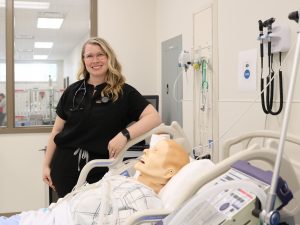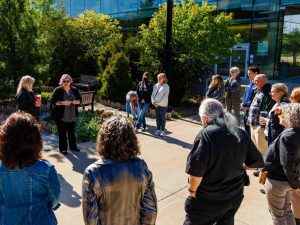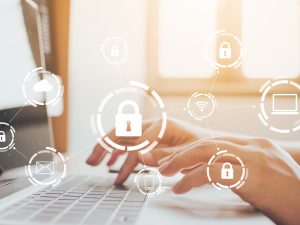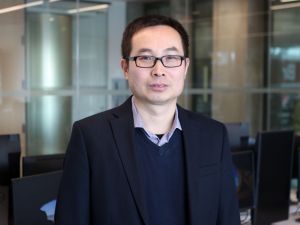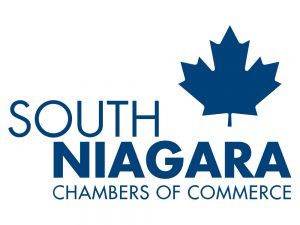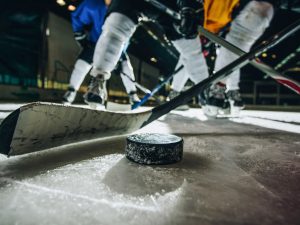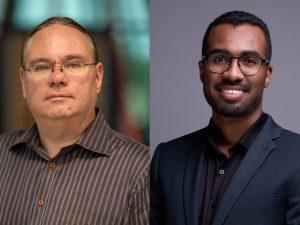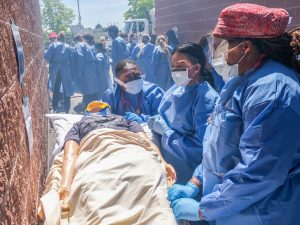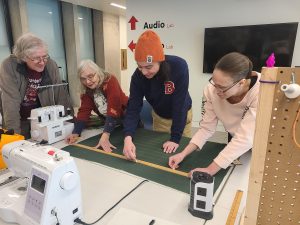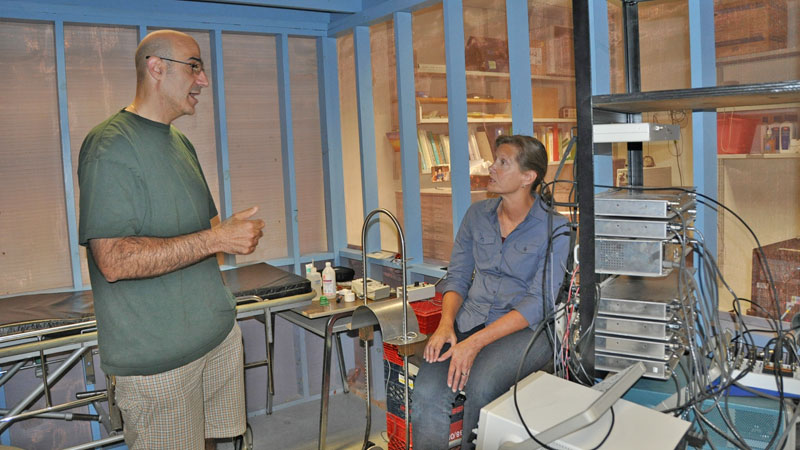 David Gabriel and Susan Duff are studying neuro-recovery in infants with injury to the nerves conducting signals to the spinal region.
David Gabriel and Susan Duff are studying neuro-recovery in infants with injury to the nerves conducting signals to the spinal region.
David Gabriel, left, and Susan Duff are studying neuro-recovery in infants with injury to the nerves conducting signals to the spinal region.
Without scratching the surface, Kinesiology professor David Gabriel’s expertise in surface electromyographic (EMG) signals provides him with the ability to non-invasively collect and analyze data for neuromuscular disorders.
Professor Susan Duff recently travelled from Thomas Jefferson University in Philadelphia to consult with Gabriel about her research on neuro-recovery and adaptation in infants with brachial plexus injury (injury to nerves conducting signals to the spinal region).
“We use kinematic and surface EMG to examine motor control and muscle activation during a few upper extremity tasks,” Duff said. “The first task involves a dynamic muscle contraction during a reach-to-grasp task and the second involves an isometric contraction only. In this study, David’s expertise focuses on the analysis of surface EMG data.”
Duff has extensive experience in the field of occupational and physical rehabilitation of infants. She and Gabriel are developing a program to extend surface EMG practices that identify neuromuscular disorders in adults, and apply it to infants.
“Muscle activity patterns that come from infants is ‘noisy’ and much different than work done with adults,” Gabriel said. “Since most of our methodology was developed on adults, we have to adapt our techniques to work with the data on infants.”
Testing to identify an “arm preference,” both researchers are pooling their talents to develop new programs and techniques that will help detect if one arm is not working properly (also known as unilateral limb dysfunction).
This data will help reveal the intentions and feelings of infants and reveal any signs of peripheral asymmetry in infants at risk for unilateral limb dysfunction.
For the past few years, this research duo has been working together to solidify a K01 career award from the National Institutes of Health (NIH).
“David has played the role of a mentor in the write-up (K01 proposal) for the analysis portion of the surface EMG,” Duff said. “Hopefully, this will lead to future projects with this or other clinical populations.”
The K01 award helps to develop promising researchers. Winning this award will allow Duff to be hosted in the Electromyographic Kinesiology lab at Brock to learn the techniques needed to further her research.

